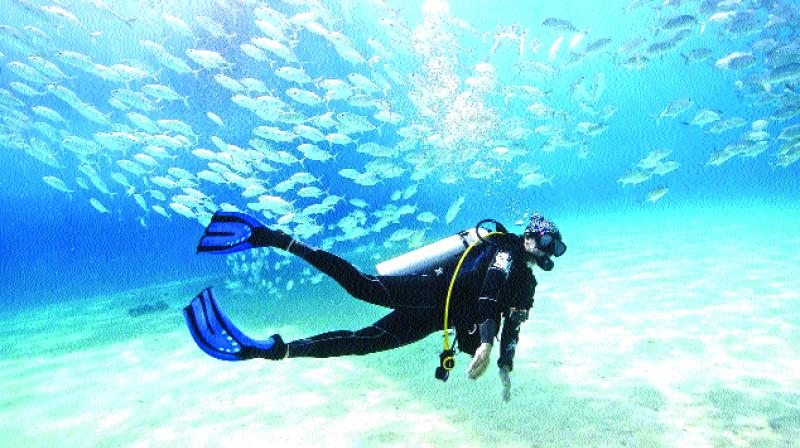Ready, set, dive!

People who are in love with marine life, corals and beautiful blue waters always have an affinity towards diving. Scuba diving is therefore gaining popularity as a sport.
SCUBA is an abbreviation for Self-Contained Underwater Breathing Apparatus, in other words, equipment that allows us to breathe underwater. There are different skill levels, depending on how much diving we’ve done.
For recreational divers, the depth limit is between 30 and 40 metres. If one wants to go deeper, special training or a specially trained buddy is required.
A new diver might have many inhibitions. But the entire experience of diving can be a memorable one if certain basic things are kept in mind.
New divers should never rush and push themselves to keep up pace with experienced divers. Taking a bit longer to assemble the diving gears is fine and once in the water, one should make sure the buoyancy is perfect and should descend slowly in water and equalise every few feet.
The underwater world is very beautiful and can tempt anyone to give it a try, but the divers should take extra care not to touch corals or other underwater species as it can have negative effects as well.
The Finning technique is very important while under water. If you don’t watch your fins, you will have no idea what you are breaking or whom you are kicking in the face. If you hit something: Stop, look.
The most important aspect of diving is the diving gear and it is necessary to take proper care of it. The equipment should be checked on timely basis and maintained well.
One should never exceed the limit, even if there are good reasons to go that deep or do that dive.
The air in the tanks is compressed and contains nitrogen, oxygen and some other gases as well. Because of the nitrogen, divers need to be very careful when diving to greater depths as nitrogen narcosis can occur, which has the same effect as excessive alcohol.

